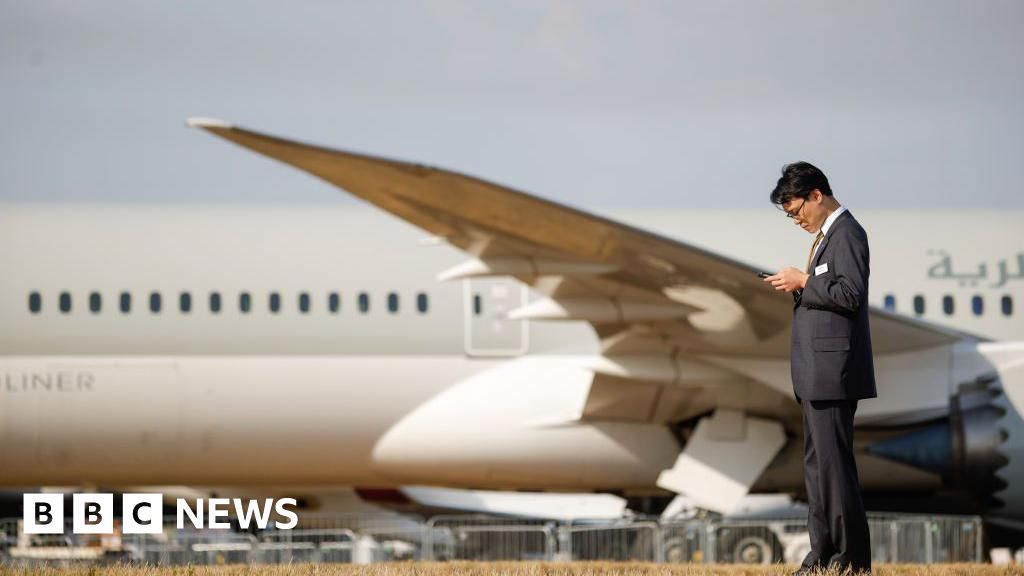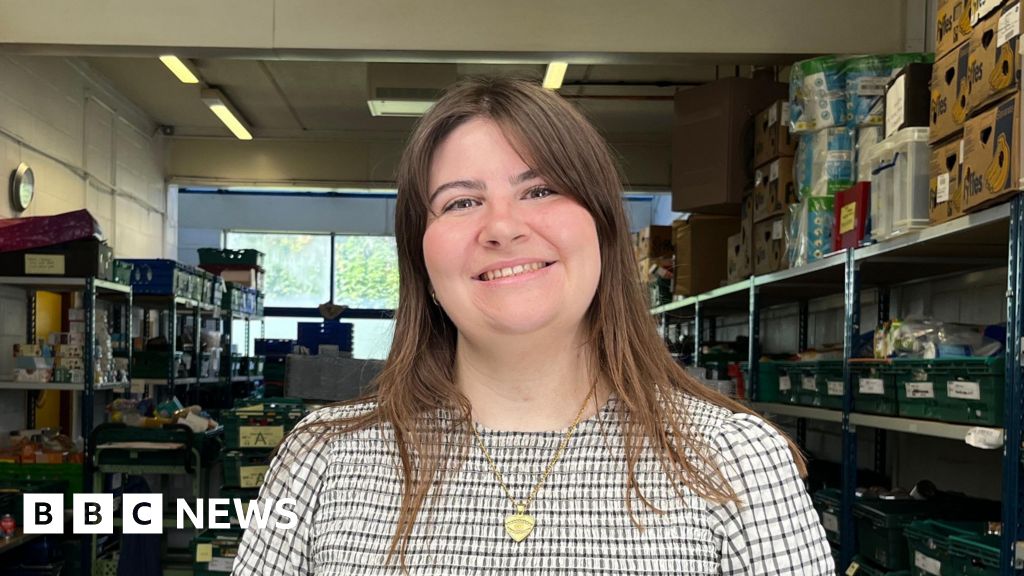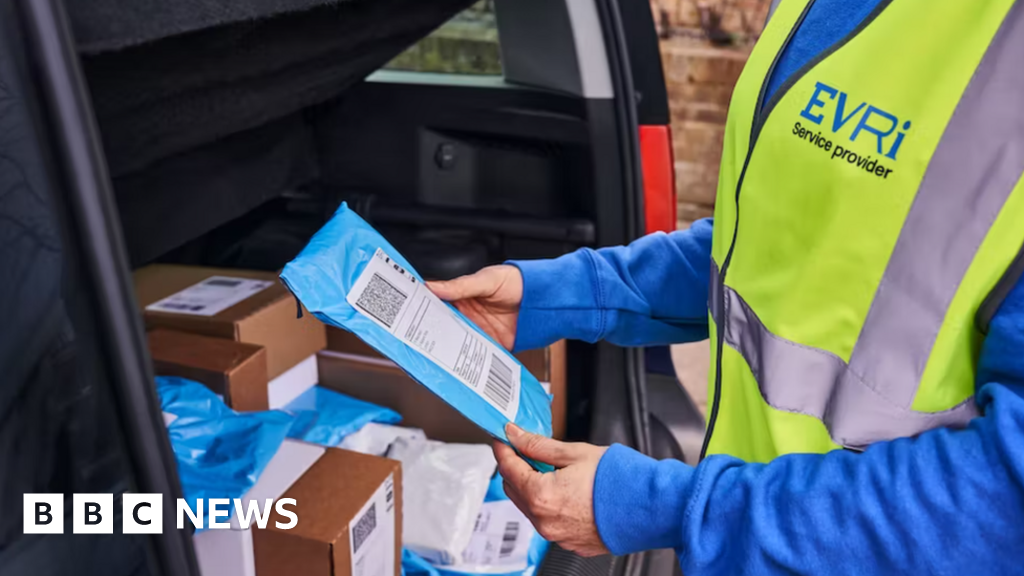ARTICLE AD BOX
By Louise Wheeler & Jennifer Harby
BBC East Midlands Today
The three young business owners say the frustrations of lockdown became opportunities
Prior to the pandemic, there was a 35% rise in the number of under-24-year-olds becoming their own boss. But how have young entrepreneurs bounced back from the successive setbacks of coronavirus lockdowns? BBC News speaks to three business people.
'My mum said she could imagine me being a florist'
Emma Parry set up her business at the age of 22
"My first memory of wanting to be a florist is because my mum said that she could imagine me being one," says Emma Parry.
Emma set up her business, The Bloom Project, at the age of 22.
"When I was about 13, my mum drove me around all the florists in Leicester asking for a Saturday job for me until we found somebody who would give me one, and it just went from there, really," says Emma, now 26.
"As a teenager, I would look at inspiring accounts on Instagram from florists all across the world and I just thought 'I'd really love to do that in Leicester'."
Emma was able to save about £4,000 to start her business, combined with a £12,000 loan from a local charity.
"To be completely honest, I didn't have any business experience - nobody in the family did - so it wasn't like I had anybody who could mentor me," she says.
"But, having worked in the business, I knew the suppliers, I knew the mark-up and I have always been really careful with money. I did it all on a really tight budget. I had a really small shop and just built it up."
Lockdown saw her business - like so many - pitched into the unknown, until inspiration struck.
"I was still able to get plants from my suppliers," she says. "I just put on Instagram 'Does anyone want a plant delivery?' because I could do doorstep deliveries.
"A few people said they would love it and it spiralled from there."
Emma branched out into dropping off plants for people's gardens, when the garden centres were closed.
"They were so popular," she says. "People were also ordering flowers for their loved ones because they couldn't see them. I had a Mini Cooper and I would put the seats down, fill it with plants, and drive all over Leicester."
Now she has returned to her shop, she has slow-and-steady expansion plans.
"We're going to make the space better and improve it," she says.
"We just need to grow the business in that way and take on more weddings and events."
Her advice to other young business people would be to develop at a pace they can handle.
"I didn't invest all my money in my shop straight away. I made sure I had savings and that does take a lot of patience," she says.
'So many people want to help us'
Image source, Goldbox Productions
Image caption,Ben says the group's enthusiasm and the quality of their work has helped spark clients' interest
"At first, lockdown was very scary but I think that pressure brought the best out of us as a business."
Videographer Ben Collison, 22, runs Goldbox Productions, in Derby, with a group of friends, also in their 20s.
They dreamt up the business as film production students at the city's university.
"We got nominated for an award for a short film at the Birmingham Film Festival," says Ben.
"On the train on the way back, we said 'Should we start a production company?'"
Image source, Goldbox Productions
Image caption,Ben and his friends dreamt up the business idea as students
Lockdown was tough for the four friends but they emerged with a host of creative ideas and decided to apply for a government Bounce Back Loan.
They started Goldbox - a content creation company - 18 months ago and, in that time, have worked with some high-profile names.
"We worked with Bear Grylls, making promo videos and photography and social edits for his fitness franchise," says Ben.
"That led to us working with the British Army on training videos. We have also worked with Gameloft, one of the biggest mobile phone game developers, doing videos with YouTubers.
"What we have found is that our enthusiasm and letting our work speak for itself means so many people want to help us.
"We wouldn't be where we are today without that."
'I got my A-level results the day we opened our business'
Omar and his brother have run their business for seven years
Omar Sacranie started his own business - a coffee shop called Saints of Mokha - with his older brother Mohammed while he was still doing his A-levels.
"I opened my results on the day the coffee shop opened," says the 24-year-old from Highfields, in Leicester.
"Post A-levels, I had thought about going to uni but we also wanted to explore this avenue."
The business was born out of his family's love of coffee.
"My dad's a massive coffee drinker, so he's living the life now," he says.
"It was a side-hustle and I think most projects - if not all projects - start as a side hustle."
He and his brother had saved a few thousand pounds between them and used it to rent a small shop, seven years ago.
Their family helped them fit out the premises.
"The first store was built out of upcycled pallets from the local factories," Omar says. "Everything we did was funded from savings or reinvestment from the business."
That was seven years ago. Today, Saints of Mokha has moved to a bigger shop, and from 16 seats to more than 60.
The brothers roast their own coffee on site, with innovative flavours including a red velvet latte, inspired by the cake of the same name.
The expansion has come despite the setback of Covid which - Omar says - has even seen some benefits.
"Post-Covid, I think people are even more welcoming to independent businesses.
"The thing I love most is that I get to know people and that people know me and I know them. It's a coffee shop where you can build relations," he says.
"Sometimes it's up and sometimes it's down but it's just perseverance to keep going."
Follow BBC East Midlands on Facebook, Twitter, or Instagram. Send your story ideas to eastmidsnews@bbc.co.uk.
Related Internet Links
The BBC is not responsible for the content of external sites.

 3 years ago
89
3 years ago
89








 English (US) ·
English (US) ·